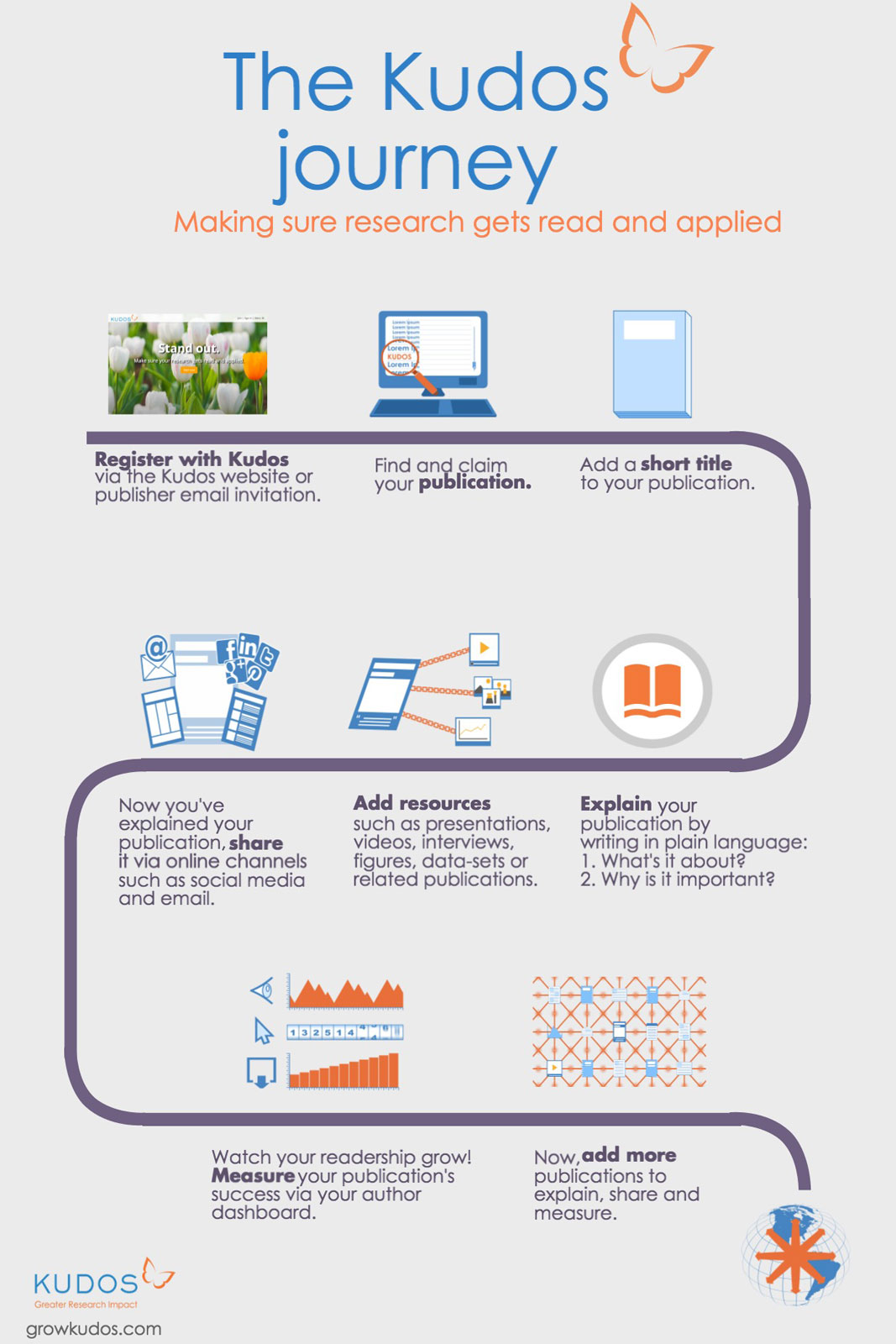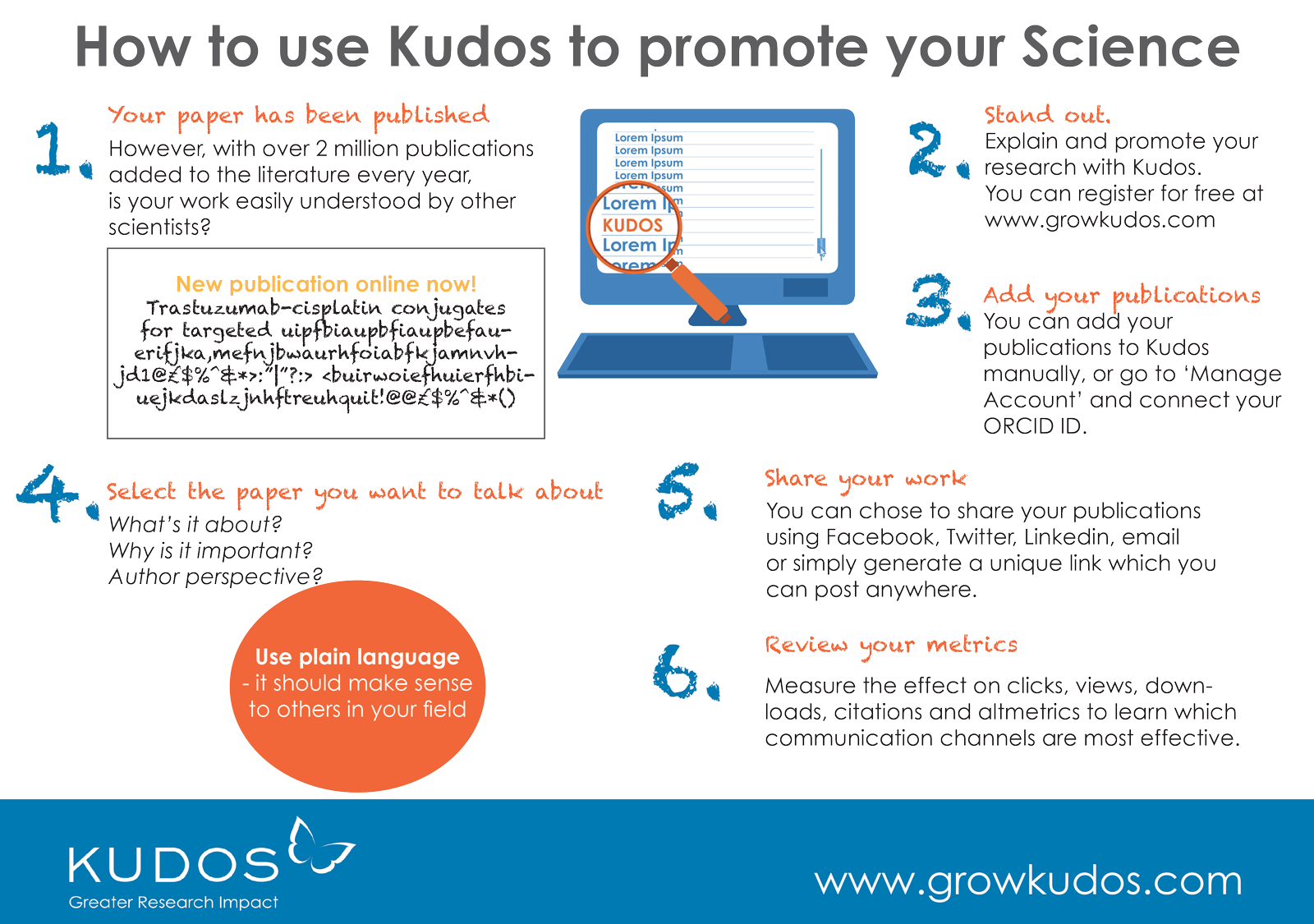Kudos
Kudos for Researchers: Explain, enrich and share your work easily

Science Communication of the D-CHAB (Department of Chemistry and Applied Biosciences) is working with Kudos - a free platform for increasing the reach and impact of your publications. You can explain your work in plain language, add links to related resources, and generate trackable links for sharing via email, web and social networks; these enable your communications to be directly mapped against views, downloads, altmetrics and citations.
An independent study has found that proactively explaining and sharing work via Kudos increases full text downloads by 23%.
Kudos is free and easy to use; to get started please register here:
external page www.growkudos.com/go/ethz
(Please note that this link is for now only available for members of the D-CHAB)
How does Kudos benefit me?
Kudos helps you increase the discoverability of your research, and by connecting the dots between your communications and your metrics, provides you with a rich understanding of how best you can increase your readership.
Why is D-CHAB working with Kudos?
- we are exploring different ways to support our researchers who want to undertake more outreach around their work
- to help encourage innovation in this space
- to be more connected to the ways you communicate - so we can amplify your efforts and help increase visibility further
- to provide a hub for additional resources related to your work
- to help you track and measure the effectiveness of your sharing activities
Can I see some examples of how other authors have used Kudos?
- Check out who Kudos is spotlighting – external page http://bit.ly/SpotlightArticles
- See example case studies - external page http://bit.ly/authorcasestudies
- Check out these useful hints and tips blog posts to support your efforts - external page http://bit.ly/improveauthorresults
Once you have registered for Kudos, you can return and sign in anytime to keep using the free service and to view updates on your article and book metrics.
Contact
ETH Zürich
Dep. Chemie und Angew. Biowiss.
Vladimir-Prelog-Weg 1-5/10
8093
Zürich
Schweiz

